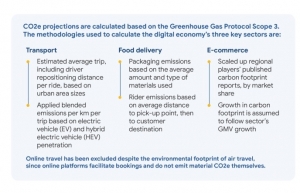E-commerce tax compliance required
 |
| The most well-known e-commerce platforms in the country have been providing information to a new portal, photo Le Toan |
The latest information from the General Department of Taxation (GDT) has shown that as of the end of July, a total of 58 foreign suppliers have registered and fulfilled their tax obligations via the foreign supplier portal, which was launched in March last year. This has contributed to a cumulative state budget revenue of $150 million.
In regard to the domestic e-commerce portal, which serves as an intermediary for the declaration of data from various e-commerce platforms to tax authorities, as of mid-July over 330 platforms have provided the required information.
Among these platforms, several hold substantial market share such as Shopee, Lazada, Sendo, and Tiki.
Information required includes, but is not limited to, identification, contact information, business address, permanent address, service industry, and bank account.
Following two information submission cycles to tax authorities, the GDT’s Tax Department of Small and Medium Enterprises, Business Households, and Individuals highlighted the presence of numerous inconsistencies in the provided information.
In the final quarter of 2022, just over 230 platforms failed to disclose transaction counts. Subsequently, during the initial quarter of 2023, this figure fell to 184 platforms.
Q1 also witnessed a 16.45 per cent reduction in the number of platforms supplying information, along with a substantial decline in both organisational and individual trading activity on these platforms, ranging from 30 to 60 per cent.
Despite this drop, transaction volume experienced an exceptional surge of over nearly 18,000 per cent. Concurrently, transaction value faced a decline of 25 per cent, accompanied by a drastic 100 per cent reduction in average transaction value.
“This prompts an evaluation of whether platforms offering an online ordering feature are abstaining from disclosing transaction counts, which constitutes a violation of the regulations pertaining to information provision,” the department said.
On August 21, the GDT introduced the Business Household Digital Map (BHDM) as an effort to advance digital and electronic transformation within tax administration throughout the country.
“From February 2024, the nationwide implementation of the BHDM will be broadly enacted. Its initial phase 1 trial deployment will take place in Hanoi, Binh Dinh, Long An, Thanh Hoa, and Hoa Binh provinces from August 1 to the end of this year,” the GDT announced.
The overarching objective of the initiative is to enable the tax office to be responsive to information queries and feedback from business households, individuals, enterprises, governmental entities, and other relevant organisations. Furthermore, the integration of the BHDM into the eTax Mobile application facilitates the accessibility and responsiveness of information inquiries through smart devices.
Upon the conclusion of phase 1, based on the findings garnered within the aforementioned five tax branches, the GDT will formulate a strategy for the progression into phase 2 across the remaining 58 tax departments, commencing next February.
Some believe that the efficacy of e-commerce tax management is contingent upon the collaborative endeavours of various ministries and sectors, which is also a common practice in the United States and European countries.
“Over the past few years, the Ministry of Industry and Trade (MoIT) along with the Ministry of Finance have engaged in collaborative efforts to formulate and enhance policies concerning the oversight of e-commerce operations,” said Le Hoang Oanh, director of the Vietnam E-commerce and Digital Economy Agency under the MoIT.
“However, as a swiftly evolving global sector with rapid expansion within Vietnam in recent years, the intricacies associated with overseeing e-commerce business activities and the associated tax collection procedures remain challenging,” Oanh added.
Oanh highlighted the prime minister’s directive, issued in May, that aims to enhance the efficacy of e-commerce tax management and collection through data sharing.
“This initiative seeks to bolster tax administration for various e-commerce activities within Vietnam, encompassing the refinement of existing data-sharing regulations and standards. The target completion date for this endeavour is this quarter, with the MoIT actively overseeing its implementation across relevant departments and functional agencies to ensure timely progress,” she noted.
 | TikTok Shop dethrones Lazada in Vietnam's e-commerce sector Having launched just last year, TikTok Shop has rapidly ascended the ranks in Vietnam's e-commerce sector, dethroning Lazada from its position as the second-largest platform by revenue, according to the latest data from market analyst firm, Metric. |
 | E-commerce groups engage in effective green strategies Although Vietnam’s e-commerce has recorded remarkable growth in recent years, related businesses are scrambling to improve sustainability due to a lack of suitable regulations. |
 | E-commerce boosted to fuel sale of Vietnamese goods The internet economy of Vietnam posted the fastest growth in Southeast Asia, from 18 billion USD in 2021 to 23 billion USD in 2022, according to a recent report on regional economies. |
 | Social media platforms take over e-commerce in Cambodia Social media is rapidly taking over the e-commerce sector in Cambodia with almost all local businesses promoting their services using social media platforms, a latest market report has revealed. |
What the stars mean:
★ Poor ★ ★ Promising ★★★ Good ★★★★ Very good ★★★★★ Exceptional
Related Contents
Latest News
More News
- Masan Consumer names new deputy CEO to drive foods and beverages growth (February 23, 2026 | 20:52)
- Myriad risks ahead, but ones Vietnam can confront (February 20, 2026 | 15:02)
- Vietnam making the leap into AI and semiconductors (February 20, 2026 | 09:37)
- Funding must be activated for semiconductor success (February 20, 2026 | 09:20)
- Resilience as new benchmark for smarter infrastructure (February 19, 2026 | 20:35)
- A golden time to shine within ASEAN (February 19, 2026 | 20:22)
- Vietnam’s pivotal year for advancing sustainability (February 19, 2026 | 08:44)
- Strengthening the core role of industry and trade (February 19, 2026 | 08:35)
- Future orientations for healthcare improvements (February 19, 2026 | 08:29)
- Infrastructure orientations suitable for a new chapter (February 19, 2026 | 08:15)

 Tag:
Tag:



















 Mobile Version
Mobile Version